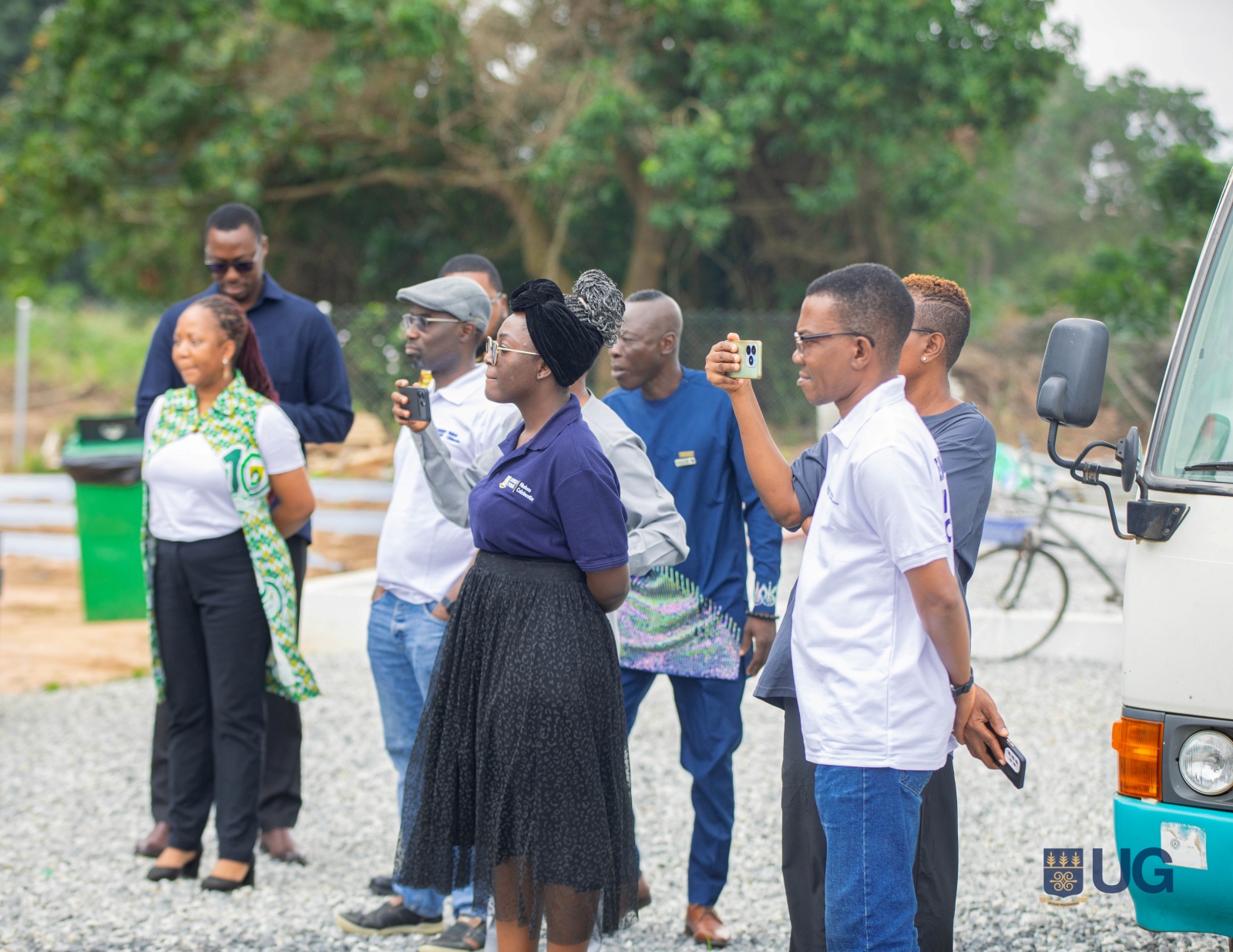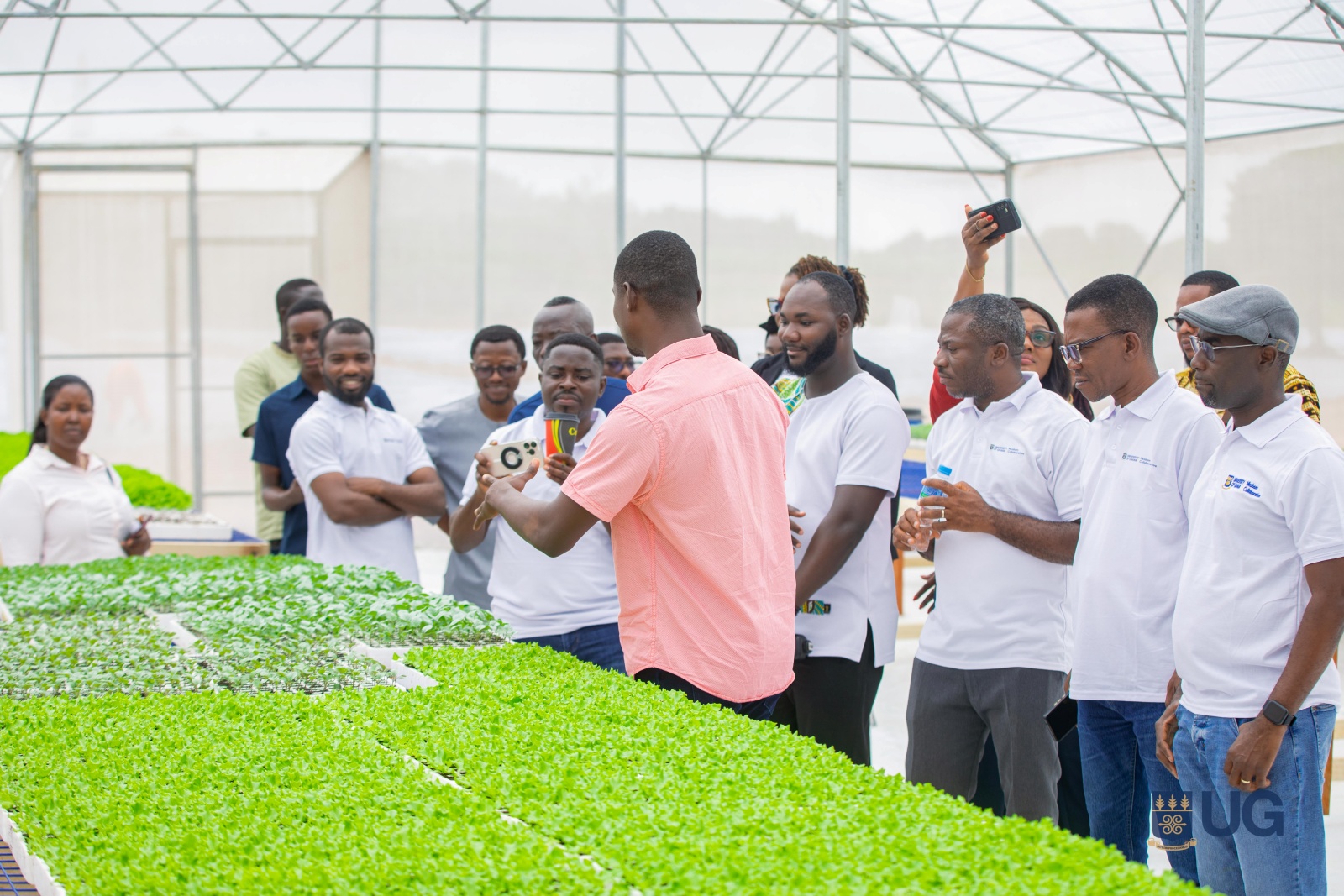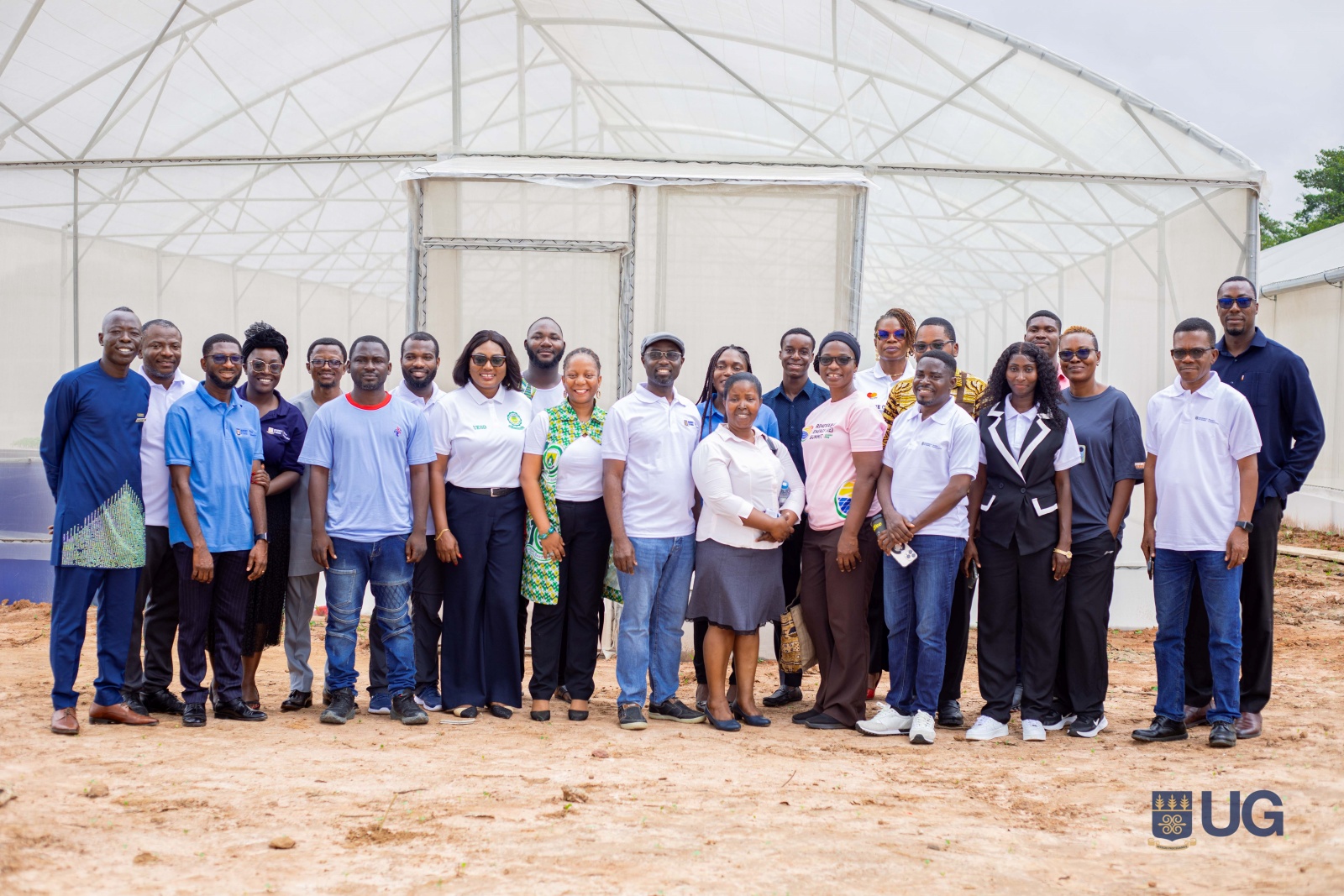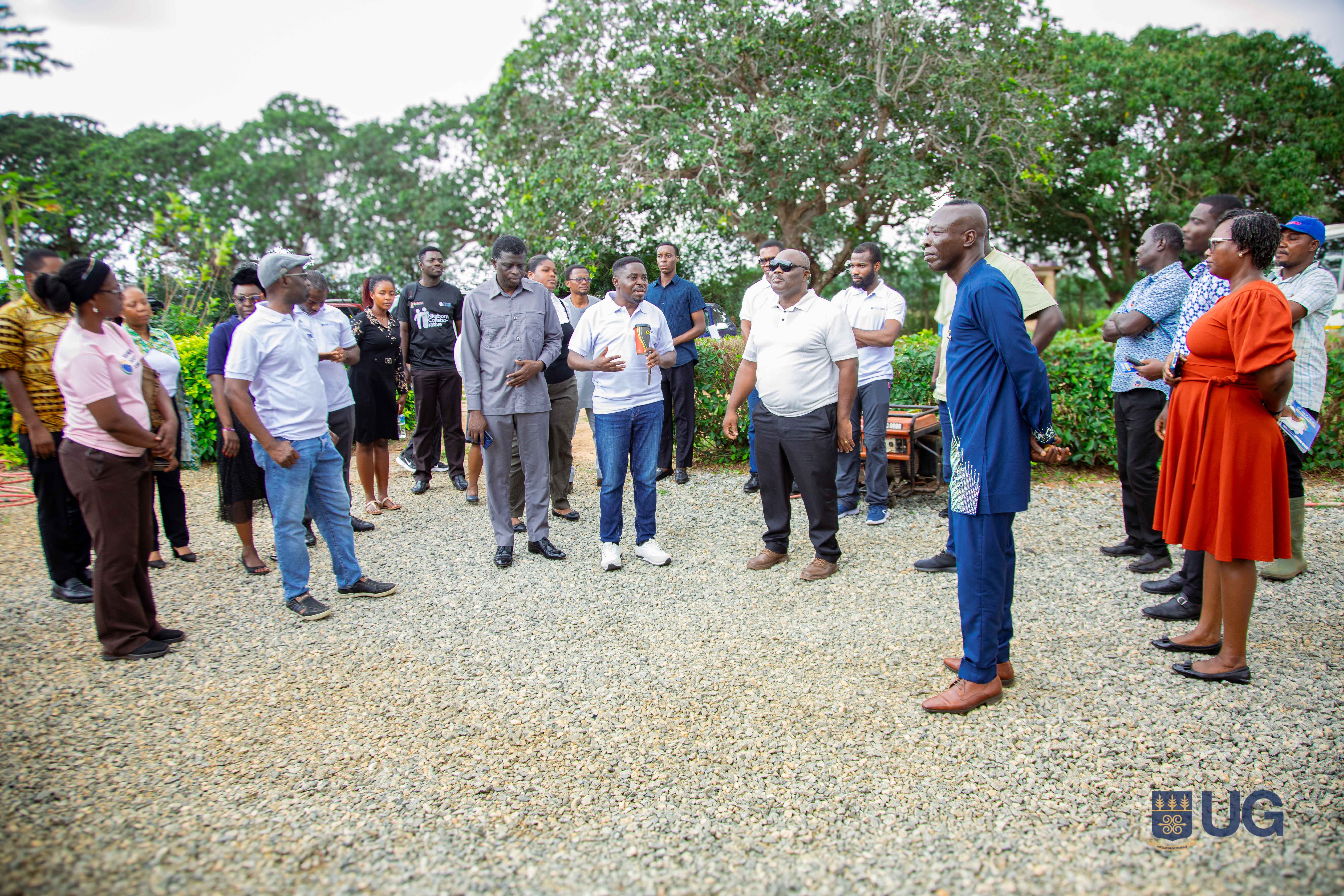UG Nkabom Collaborative and Partners Take Stock of Progress, Strategise for Future Implementation
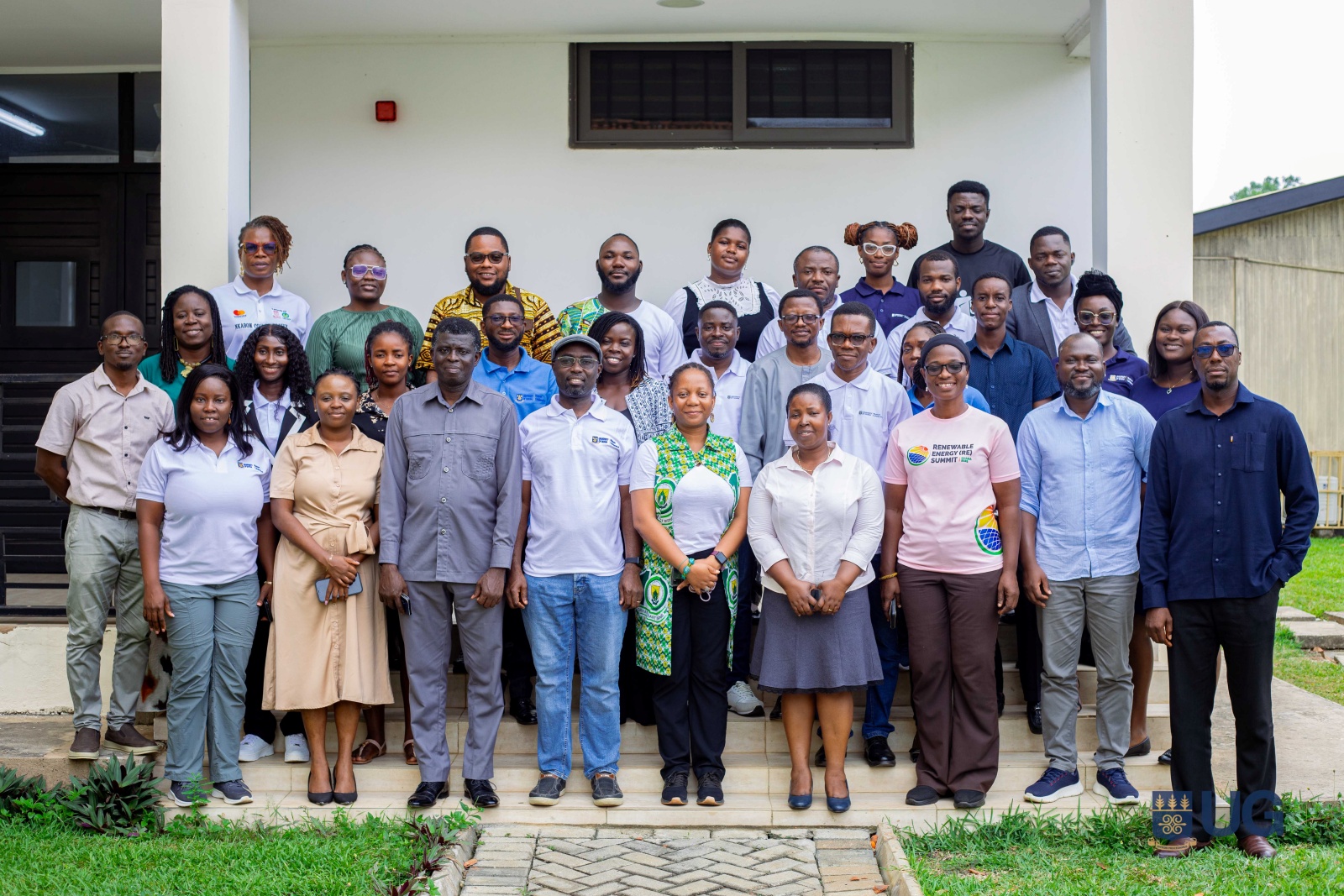
The University of Ghana Nkabom Collaborative has hosted a full-day networking session to review progress made in its first year and to map strategies for the future implementation of its programmes.
The event, held at the School of Public Health, brought together representatives from sister Nkabom Collaboratives at Ashesi University, the University of Health and Allied Sciences (UHAS), the University of Environment and Sustainable Development (UESD) and Koforidua Technical University.
Opening the session, Prof. Richmond Aryeetey, Collaborative Lead for UG Nkabom, explained the importance of convening partners as the Collaborative approaches the end of its first year. “It is important to gather as partners to see what we are doing, share best practices, reflect on challenges and map strategies to improve implementation. This networking is critical for sustaining momentum and ensuring the Collaborative delivers on its goals,” he said.
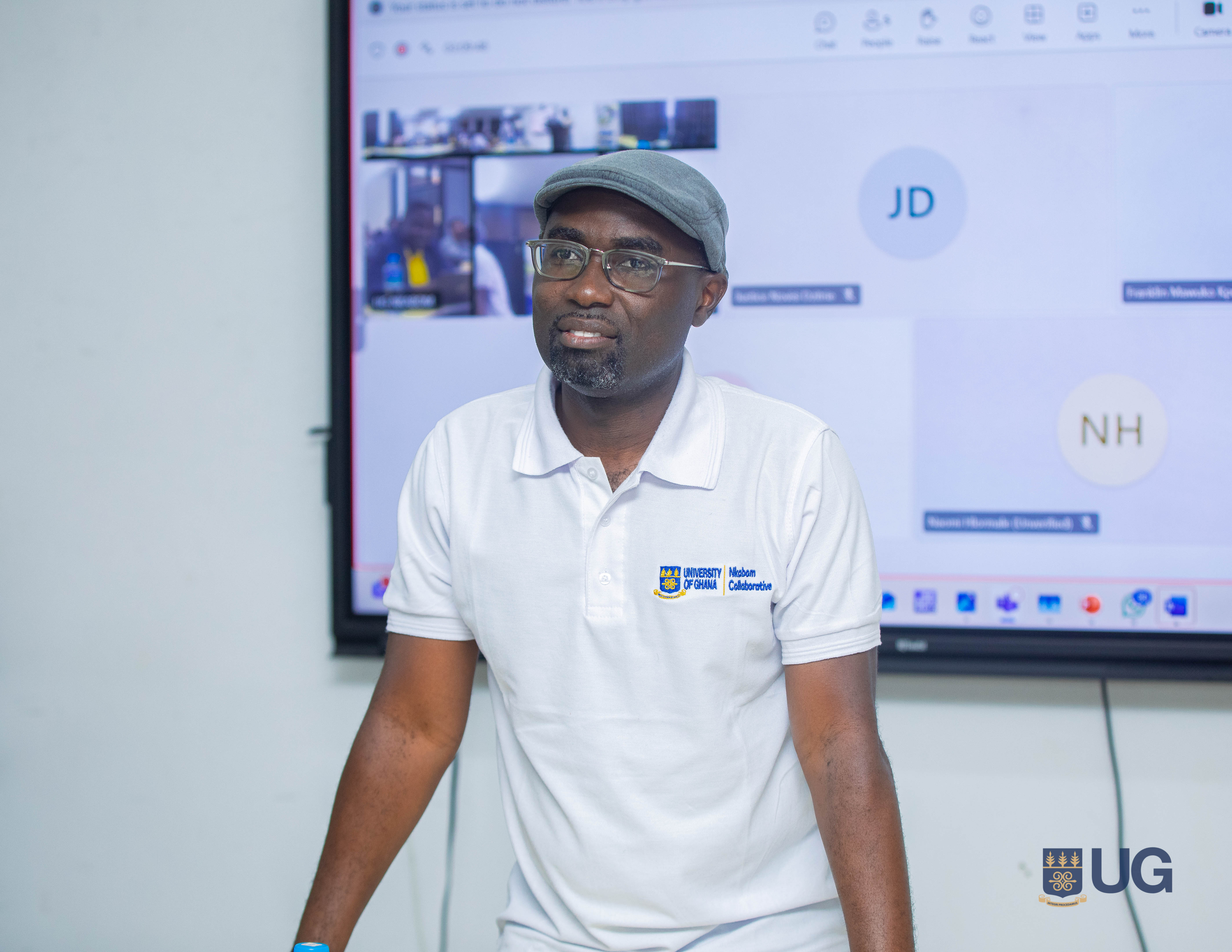
Prof. Aryeetey reaffirmed the vision of the Collaborative, noting that it seeks to transform Ghana’s nutrition and agri-food system into one that can sufficiently feed the population, equip skilled youth to contribute meaningfully and ensure inclusivity for women, persons with disabilities and other marginalised groups. He mentioned that the foundation laid so far is strong and with continued commitment, the impact of the Collaborative would be far-reaching.
As part of the engagements, the three pillar leads of the UG Nkabom Collaborative, Dr. Hayford Ayerakwa (Education), Dr. Fidelia Dake (Access and Success) and Prof. George Acheampong (Entrepreneurship), presented updates on their respective one-year work plans and outputs.
Providing an overview of progress under the Education Pillar, Dr. Hayford Ayerakwa reported that curricula for student-led short courses had been co-created and validated with youth agribusiness entrepreneurs. He highlighted the upcoming launch of an Honours Programme and short courses, alongside platforms for knowledge sharing such as seminar series, including the Post-doctoral Students’ Seminar and a lecture with international food systems scholar, Dr. Anna Herforth. He further noted that five students had been selected from across disciplines to receive mentorship and support in developing their ideas into viable innovations.
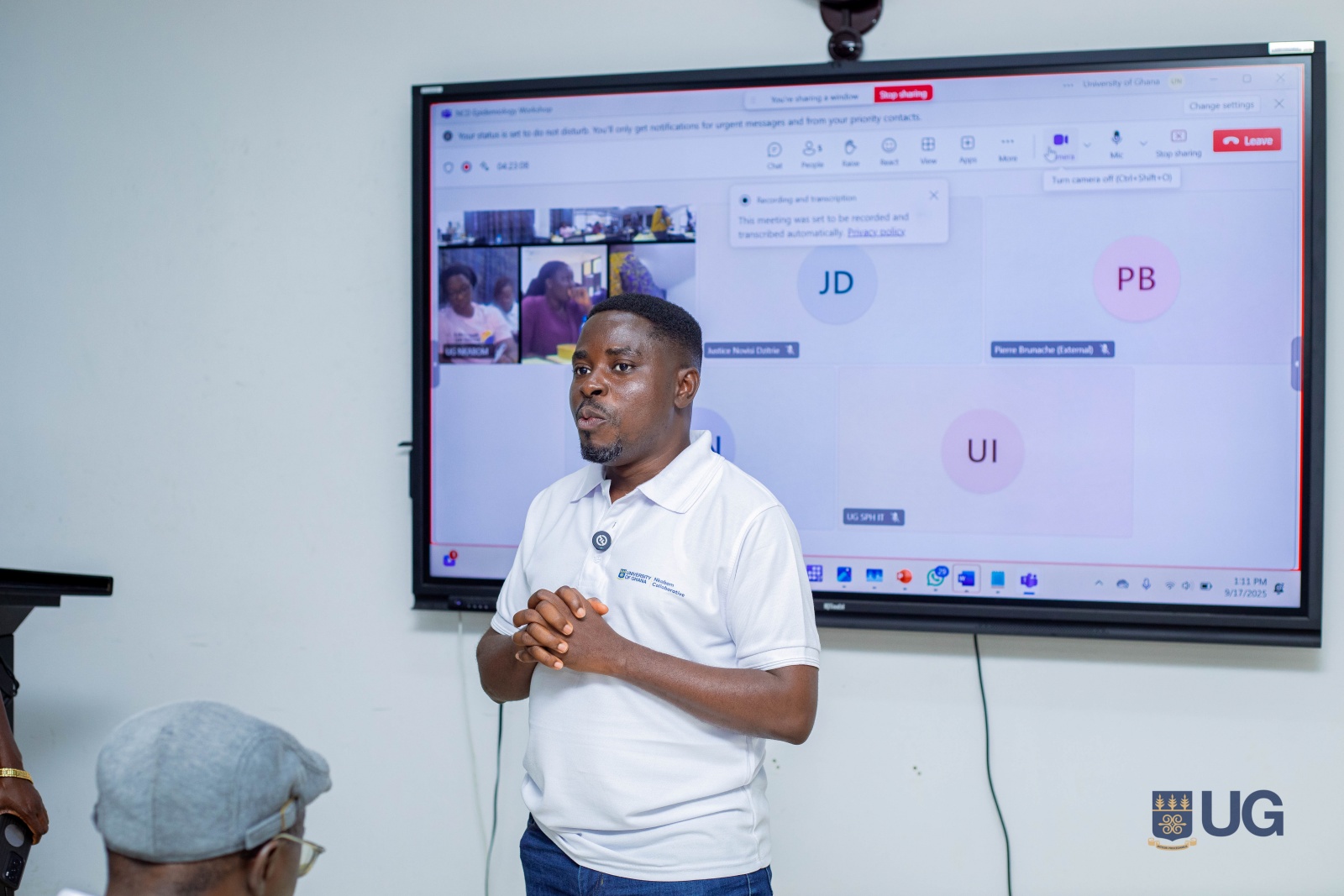
Dr. Fidelia Dake, presenting on the Access and Success Pillar, underscored the centrality of inclusivity to the agenda of UG Nkabom. She explained that pathways were being created for women, persons with disabilities and displaced persons through scholarships, mentorship and psychosocial support.
According to Dr. Dake, concrete actions taken so far included the recruitment of two postdoctoral researchers, funding support for a female PhD student and counselling training for faculty to better support Nkabom student partners.
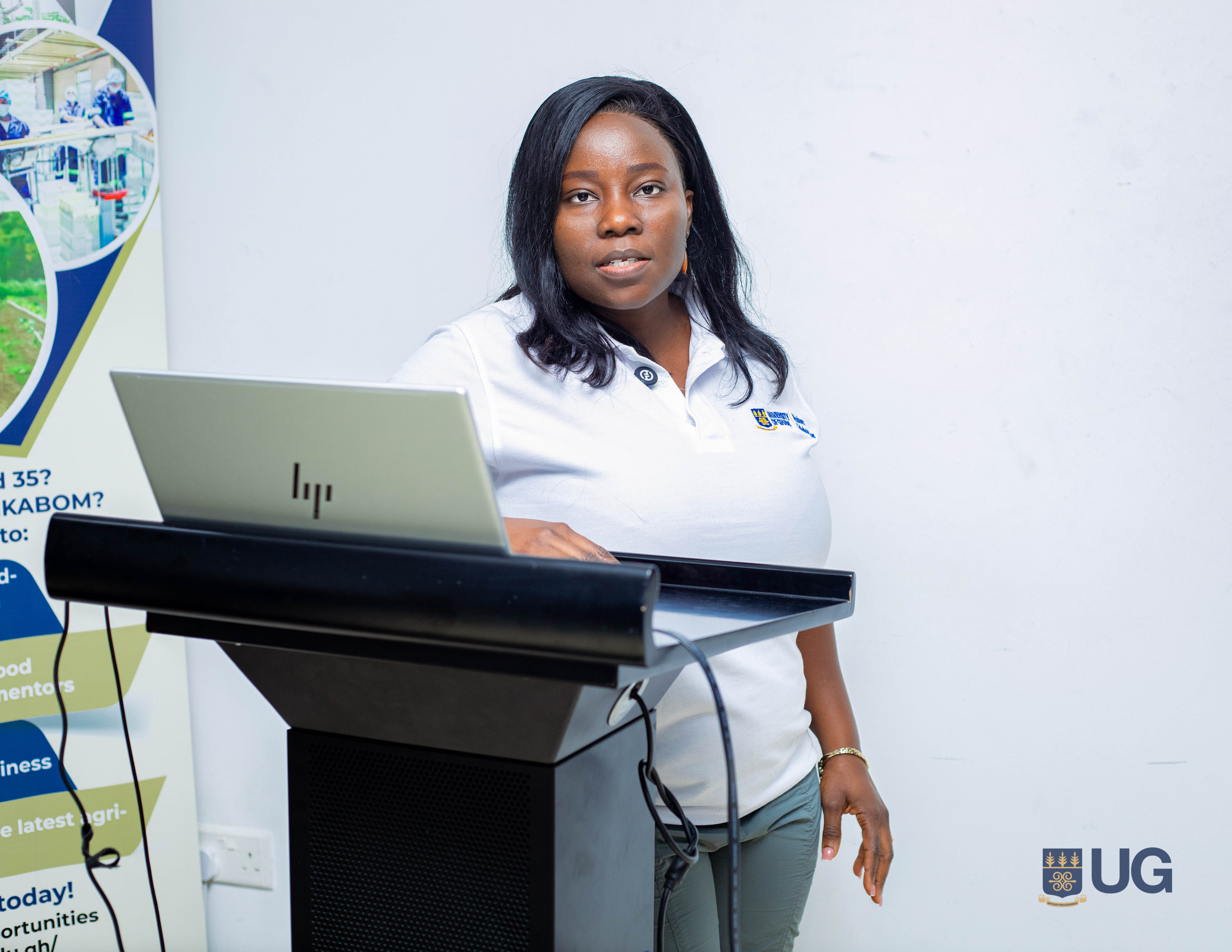
On his part, Prof. George Acheampong outlined progress under the Entrepreneurship Pillar, which focuses on building a vibrant agribusiness ecosystem. He reported on the launch of a community network and roadshow, stakeholder engagements held across the Northern and Southern Belts and the recruitment of mentors to guide young agribusiness entrepreneurs.
Prof. Acheampong added that exhibitions, venture incubation initiatives and entrepreneurship training for rural women were also underway to ensure that youth-led enterprises could thrive and contribute meaningfully to Ghana’s food systems.
In a presentation on UG’s strategic direction, Dr. Collins Badu Agyemang, Director of the Pan-African Doctoral Academy, demonstrated how the Nkabom Collaborative aligns with UG’s 2024–2029 Strategic Plan. He explained that “the Collaborative reflects UG’s mission to achieve global impact through a people-centred approach, while creating enabling environments for research and teaching that are relevant and transformative.”
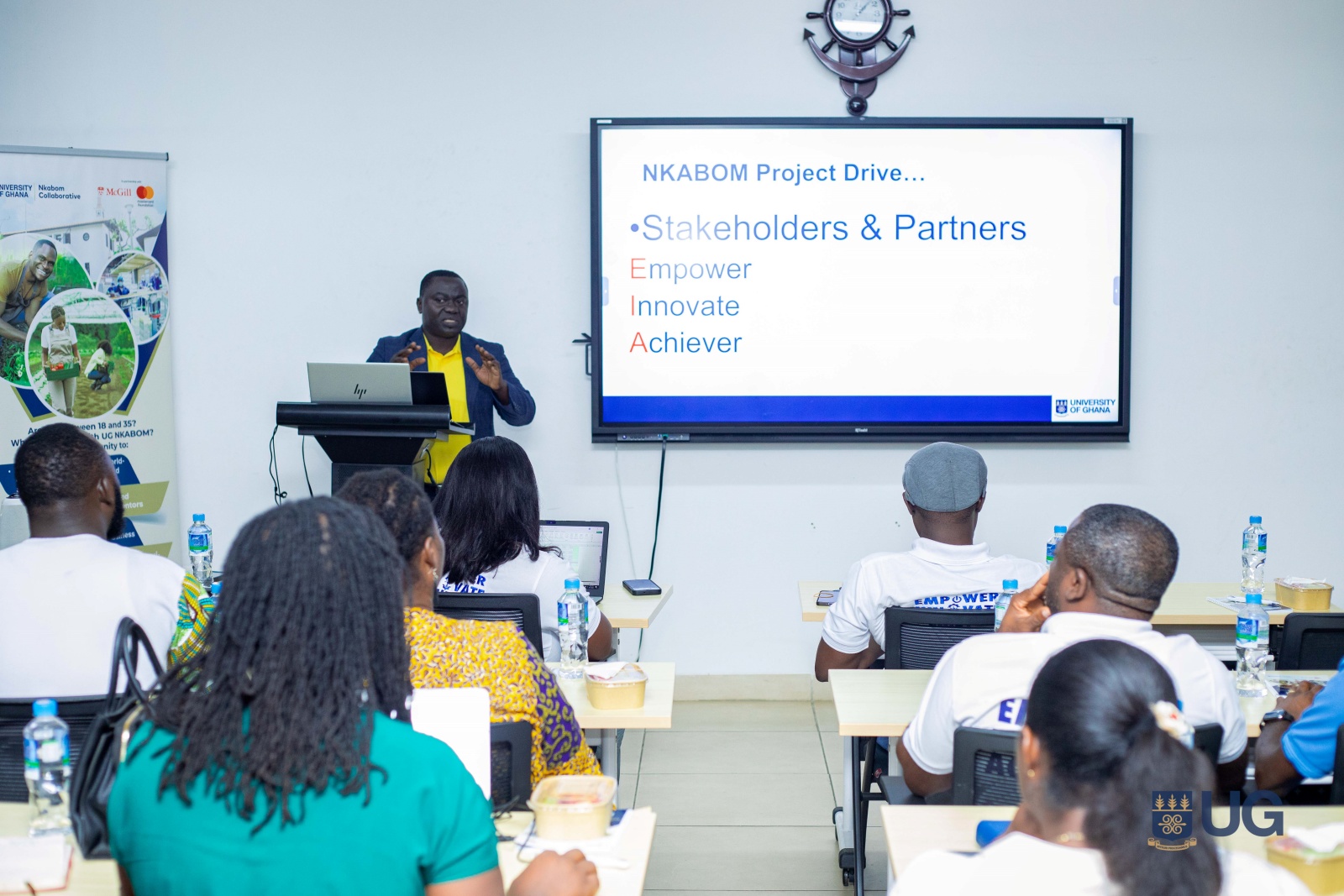
Dr. Agyemang further stated that with the Collaborative contributing directly to the University’s strategic priorities, UG was fully behind the team in its efforts to strengthen partnerships, advance innovation and deliver tangible outcomes that benefit both students and society.
Mr. Pierre Brunache, Secretariat Director of the Nkabom Collaborative, who joined the session virtually, commended UG’s leadership in steering the initiative. He said that the progress made by the UG Nkabom team had been impressive and emphasised that sustaining this momentum would be key to achieving the Collaborative’s objectives.
Participants toured the UG Nkabom Office, which serves as the hub of the Collaborative, as well as other facilities of collaborators at the University of Ghana that are being utilised for training, research and innovation. These included the Vegetable Centre of Excellence and its six-acre demonstration farm, the Institute of Applied Science and Technology’s Greenhouse Innovation Centre, and the Centre for Disability Studies and Advocacy. The visits showcased how these facilities are supporting skills development in agripreneurship, promoting agricultural innovation, and advancing inclusion for persons with disabilities.
